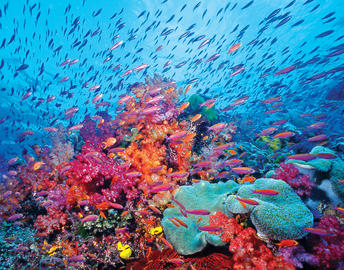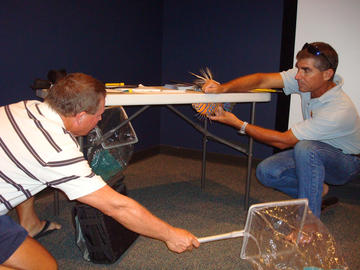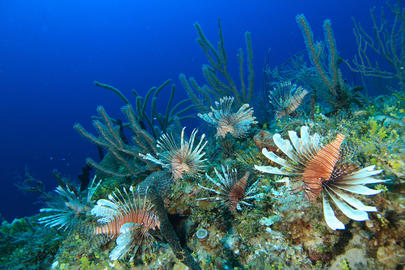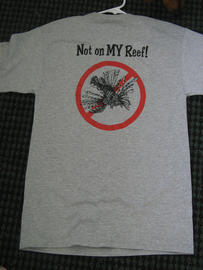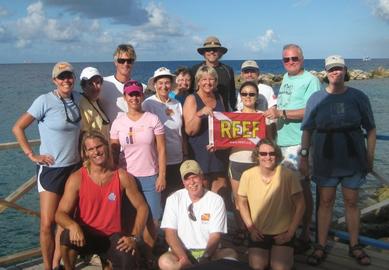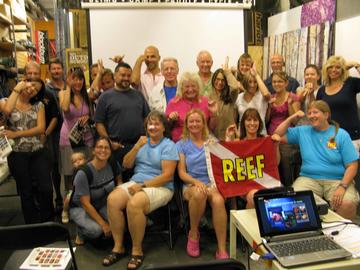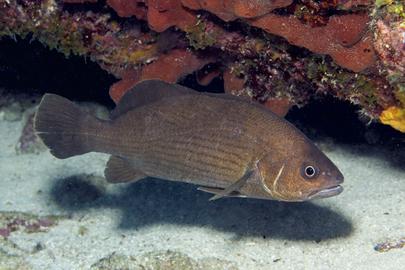As another amazing year draws to a close, we are reaching out to our valued members to contribute financially. REEF is a member-driven organization that is focused on the conservation of our world's ocean environments. The key to our 20-year success story is a close partnership between our volunteers, contributors, and staff, who share both an affinity for marine wildlife and a commitment to its sustainability. As never before, we are counting on your tax-deductible financial support, which is the cornerstone of our grass-roots efforts to protect the marine environment.
REEF is working in close partnership with the Florida Keys National Marine Sanctuary (FKNMS) to diligently track lionfish reports and initiate removal efforts in South Florida. The first confirmed lionfish in the Florida Keys was reported and captured within 24 hours in January 2009 (see previous enews article). Subsequent early reports in March-June were met with successful rapid response.
REEF is continuing our ground-breaking research and outreach on the lionfish invasion with projects in Puerto Rico and the US Virgin Islands. The project is supported with funding from the NOAA Coral Reef Conservation Grant and the Buck Island REEF National Park and long-time supporters Henry Foundation, Oceans Foundation and Munson Foundation.
Our t-shirt may say, “It’s all about the fish”, but if you’ve been on a REEF trip, you know it’s about the people too. Diving with like-minded enthusiasts who share your interest in learning more about our underwater world is one of the best ways to spend your dive vacation! Our recent trip to Curacao was no exception – a great group of surveyors of all levels came together to share their knowledge, fish encounters, and a lot of fun. Experts Doug Harder and Kay Tidemann showed us some of the unusuals, including the delicate Pale Cardinalfish and a rare reverse-pattern Goldentail Moray.
In an ongoing collaborative conservation program called the ‘Grouper Moon Project’ with the Reef Environmental and Education Foundation (www.REEF.org), the Cayman Islands Department of the Environment has expanded the Nassau grouper monitoring to Grand Cayman.
As part of REEF's ongoing efforts to engage new divers and snorkelers into the Volunteer Survey Project, as well as to provide existing REEF volunteers with continued training and survey opportunities, we coordinated a REEF Workshop in Southern California last month. The free identification classes, which were taught by REEF Instructor Janna Nichols, were very well attended and the workshop series was a success. Almost 100 divers turned out to take the REEF California Fish and Invertebrate Identification classes and about a dozen divers joined in the survey event at Malaga Cove.
Happy Fall, REEF Members!
One of the best parts about fishwatching is that no matter how many surveys you have under your belt, there's always a chance to see something unexpected. Recently I was diving on Davey Crocker Reef near Tavernier in the Florida Keys with four REEF surveyors. As often happens, we got separated, me with my photography and the others surveying. I spotted a brown fish about 8 inches long “drifting” in the water just under a ledge overhang. It sort of looked like a croaker to me, but not one that I recognized. I photographed it from a distance and continued to photograph while moving closer.

